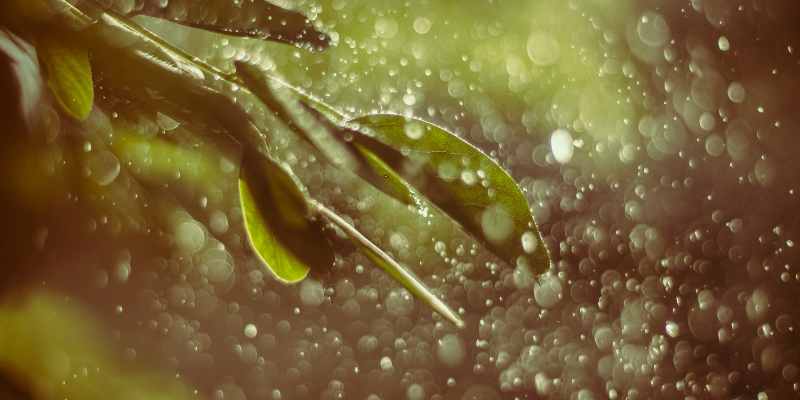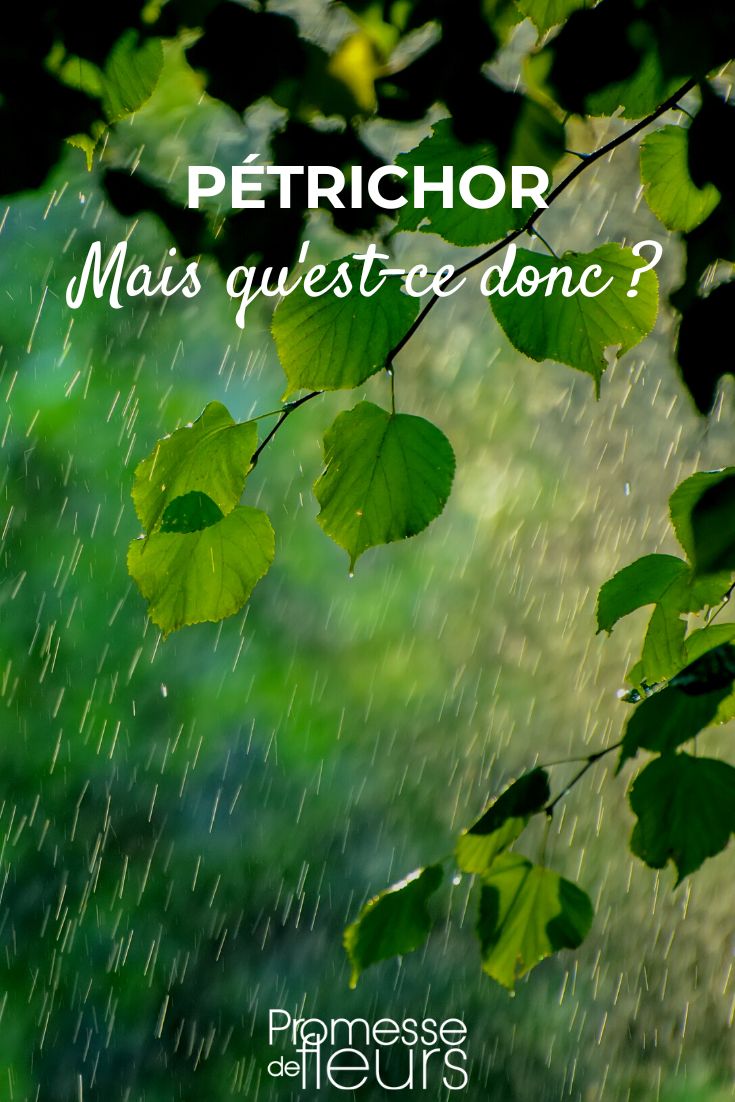Petrichor describes a phenomenon that many of us know well, even if we have never heard the term. It is the distinct smell, both fresh and earthy, that emanates from the ground after a light rain, particularly following a long dry spell. But where does this particular scent come from, and why is it so evocative for so many of us? Let’s dive into the fascinating world of petrichor to uncover the secrets of this smell that evokes so many memories and sensations.

Petrichor: what a funny word!
The term "petrichor" has its origins in ancient Greek. It is formed from two words:
- "petra" meaning "stone" or "rock".
- "ichor" which is the ethereal golden fluid that, according to Greek mythology, flows in the veins of gods and goddesses instead of blood.
The term was introduced into scientific literature in 1964 by two Australian researchers, Isabel Joy Bear and Richard G. Thomas, in an article for the journal "Nature", where they described the smell of rain on dry soil. The word was used to describe the essence of oil that is released from stones and dry earth when they are wetted by rain, thus producing that distinct smell we associate with fresh rain.
Where does this strange smell come from?
Petrichor is the result of several physicochemical processes that occur when rain falls on the ground, particularly on soil that has been dry for some time.
- Volatile organic compounds (VOCs): Before the rain, some plants release oils into the soil. These oils are produced during dry periods and serve to slow down seed germination and growth, thus protecting plants from excessive competition for water. When rain falls on the soil, these oils are released into the air, contributing to the smell of petrichor.
- Actinobacteria: These microorganisms are found in the soil and produce a chemical substance called geosmin when they produce spores. Geosmin is a compound with a very strong smell, easily detectable by the human nose. When rain falls, it hits the ground and causes this geosmin to evaporate, which is then carried by the air. This is why we can smell that "wet earth" scent after rain.
- Bubble bursting: When rain falls on porous soil, it traps small air bubbles. These air bubbles rise to the surface of the soil and burst, releasing tiny aerosols. These aerosols contain particles and compounds from the soil, which mix with the oils and geosmin to produce the characteristic smell of petrichor.
The intensity and specific nature of petrichor can vary depending on the region, soil type, surrounding vegetation, and other factors. However, the general mechanism involves the combination of volatile organic compounds, geosmin, and the bubble bursting effect caused by rain hitting the ground.

Why do we love this smell?
The appreciation of petrichor, the smell of earth after rain, is a widespread phenomenon. Several theories and reasons can explain why many people love this smell:
- One theory suggests that our attraction to the smell of rain may have evolutionary roots. Our ancestors, who depended on rainwater for drinking, agriculture, and food (which is still the case!), may have learned to associate this smell with impending rain, indicating the arrival of fresh water. This association could have been beneficial for survival.
- The smell of petrichor may also evoke childhood memories, moments spent outdoors, or other positive memories associated with rain or nature (like jumping in puddles with a "splash!"). Scents have the ability to trigger powerful memories, and for many, petrichor is linked to pleasant moments.
- The smell of petrichor has the ability to reconnect us with nature, if only for a moment. In our modern lives, often disconnected from the natural world, this smell offers a brief reminder of our relationship with the environment around us.
- Moreover, rain tends to wash away dust and pollutants from the air, which can give a feeling of freshness and purity after a shower. This "cleanliness" of the air can be positively associated with the smell of petrichor.
- Finally, as mentioned earlier, petrichor is composed of geosmin, a compound produced by bacteria in the soil. It has been shown that humans are particularly sensitive to this molecule, which may explain why we are so drawn to this smell.
Ultimately, the appreciation of petrichor is likely the result of a combination of biological, environmental, or personal factors. And... well, we don’t really know why we love petrichor, but we do. At least, I do. How about you?

































Comments